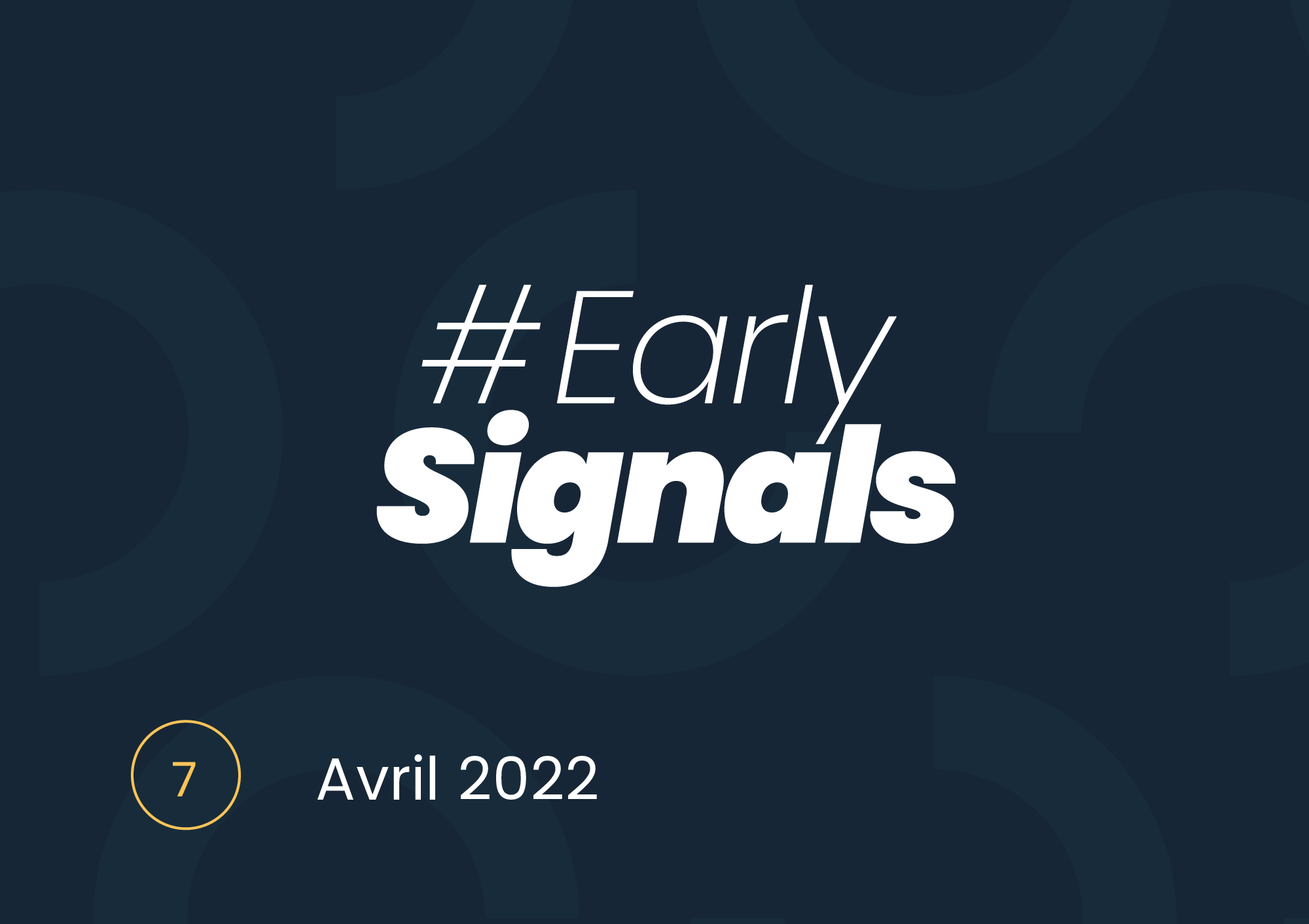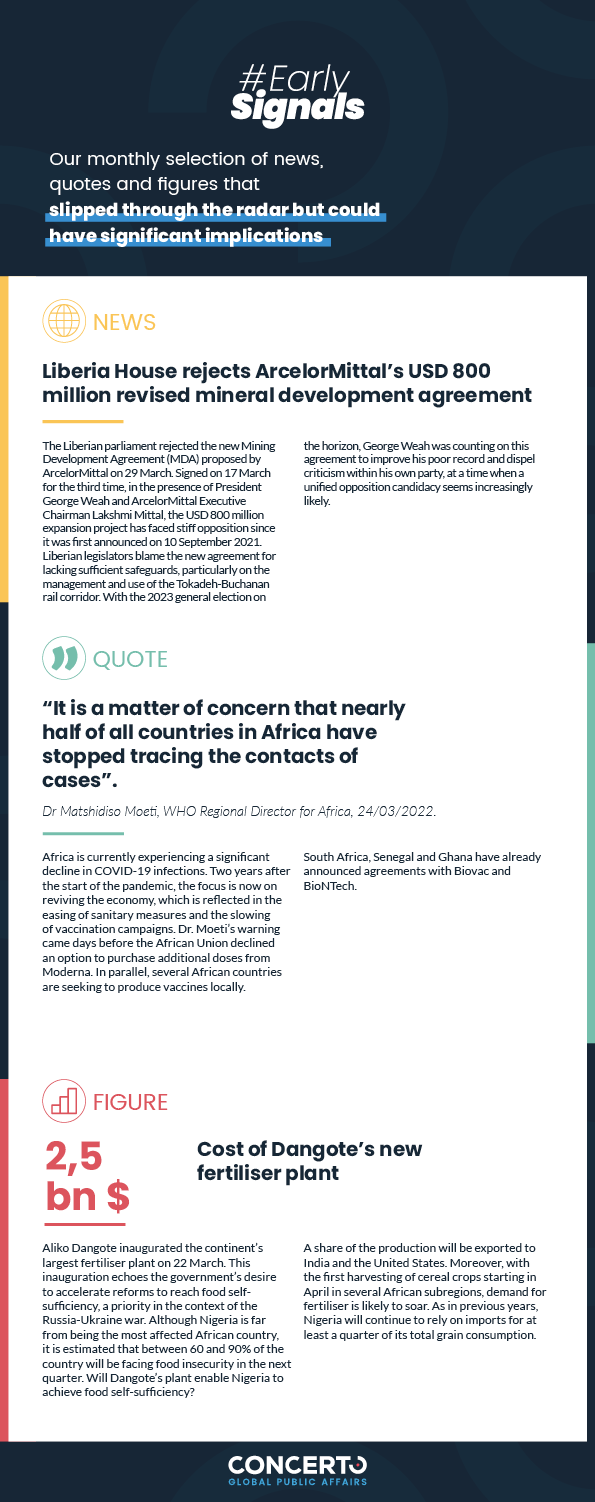Back
#EarlySignals - April 2022
12 April 2022

Analysis
Our monthly selection of news, quotes and figures that slipped through the radar but could have significant implications
NEWS
Liberia House rejects ArcelorMittal’s USD 800 million revised mineral development agreement
The Liberian parliament rejected the new Mining Development Agreement (MDA) proposed by ArcelorMittal on 29 March. Signed on 17 March for the third time, in the presence of President George Weah and ArcelorMittal Executive Chairman Lakshmi Mittal, the USD 800 million expansion project has faced stiff opposition since it was first announced on 10 September 2021. Liberian legislators blame the new agreement for lacking sufficient safeguards, particularly on the management and use of the Tokadeh-Buchanan rail corridor. With the 2023 general election on the horizon, George Weah was counting on this agreement to improve his poor record and dispel criticism within his own party, at a time when a unified opposition candidacy seems increasingly likely.QUOTE
"It is a matter of concern that nearly half of all countries in Africa have stopped tracing the contacts of cases." Dr Matshidiso Moeti, WHO Regional Director for Africa, 24/03/2022.Africa is currently experiencing a significant decline in COVID-19 infections. Two years after the start of the pandemic, the focus is now on reviving the economy, which is reflected in the easing of sanitary measures and the slowing of vaccination campaigns. Dr. Moeti's warning came days before the African Union declined an option to purchase additional doses from Moderna. In parallel, several African countries are seeking to produce vaccines locally. South Africa, Senegal and Ghana have already announced agreements with Biovac and BioNTech.
FIGURE
USD 2.5 billion - Cost of Dangote's new fertiliser plant
Aliko Dangote inaugurated the continent's largest fertiliser plant on 22 March. This inauguration echoes the government's desire to accelerate reforms to reach food self-sufficiency, a priority in the context of the Russia-Ukraine war. Although Nigeria is far from being the most affected African country, it is estimated that between 60 and 90% of the country will be facing food insecurity in the next quarter. Will Dangote’s plant enable Nigeria to achieve food self-sufficiency? A share of the production will be exported to India and the United States. Moreover, with the first harvesting of cereal crops starting in April in several African subregions, demand for fertiliser is likely to soar. As in previous years, Nigeria will continue to rely on imports for at least a quarter of its total grain consumption.